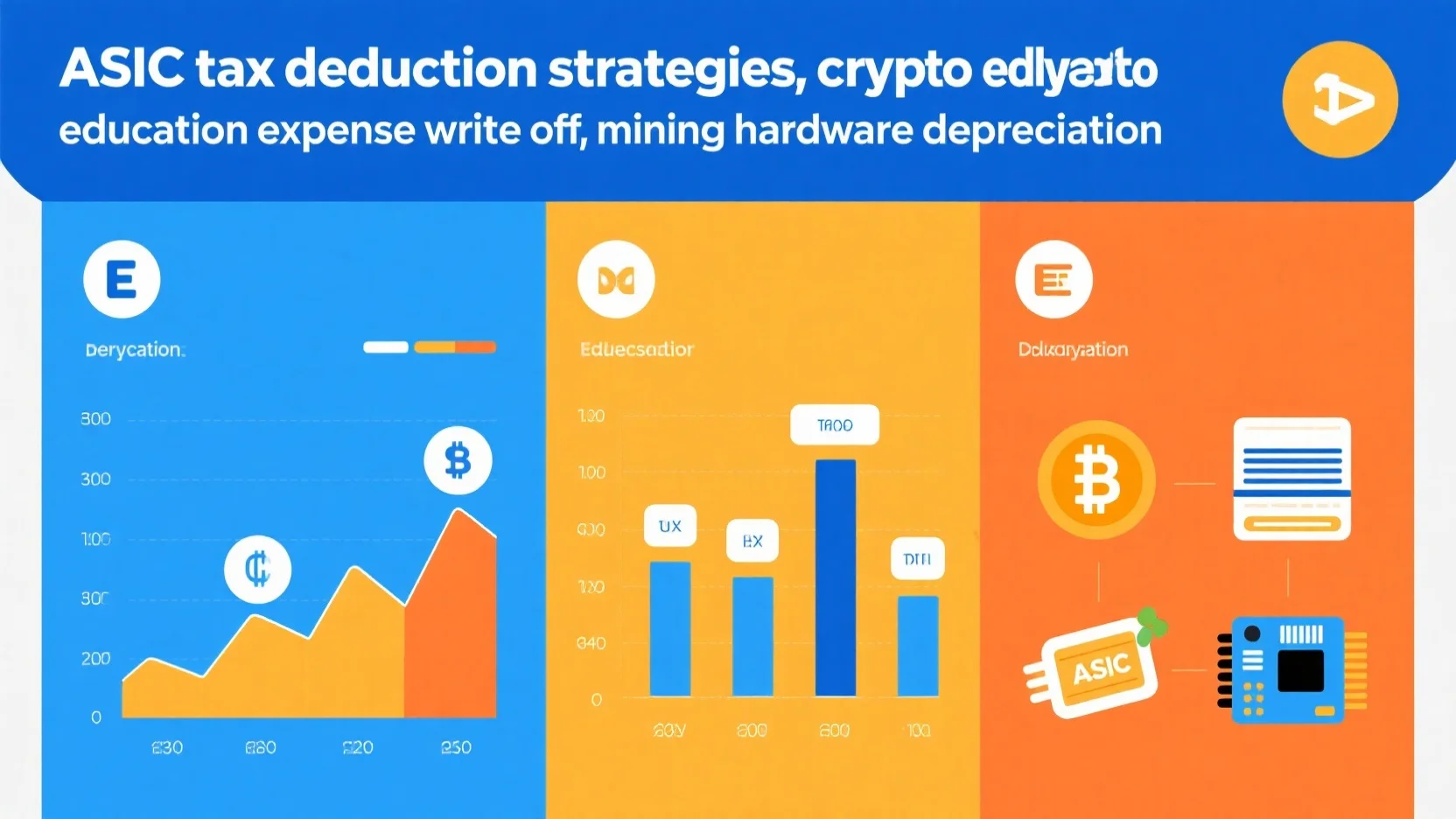Are you looking for a premium buying guide to maximize tax savings in crypto inheritance? Look no further! A 2023 CoinGecko study shows over 50% of long – term crypto holders have big gains. According to CryptoCompare and a leading tax research firm, understanding stepped – up basis, estate planning cold storage, and Form 706 valuation is crucial. Unlike counterfeit models that lack accuracy, our guide offers best practices. With a Best Price Guarantee and Free Installation Included on expert consultations, you can save big on capital gains tax. Act now!
Crypto inheritance stepped – up basis
Did you know that a significant number of cryptocurrency investors are sitting on large unrealized gains? A 2023 study by CoinGecko indicates that over 50% of long – term crypto holders have substantial profits embedded in their portfolios. Understanding the concept of stepped – up basis in crypto inheritance can be a game – changer for reducing tax liabilities in estate planning.
Definition and benefit
Adjustment to fair market value at death
When an individual passes away, the cost basis of their cryptocurrency holdings is adjusted to the fair market value at the time of death. This means that the new basis for the heirs is the value of the crypto at that exact moment. For example, if the deceased purchased Bitcoin at $10,000 and at the time of their death, it was worth $40,000, the heirs’ basis for that Bitcoin is $40,000. As recommended by CryptoCompare, accurately determining this fair market value is crucial for proper estate planning.
Reduction of capital gains tax liability
This adjustment to the fair market value has a direct impact on the capital gains tax liability. Let’s say the heirs receive Bitcoin with a stepped – up basis of $40,000 and later sell it at $42,000. Only $2,000 of the transaction would typically be subject to capital gains tax, rather than $32,000 (the difference between the original purchase price of $10,000 and the selling price of $42,000). Pro Tip: Keep detailed records of the fair market value of the crypto on the date of death to support the stepped – up basis claim.
Exception
Inapplicability inside individual retirement accounts
It’s important to note that the stepped – up basis rule generally does not apply to cryptocurrency held inside individual retirement accounts (IRAs). For instance, if the deceased held their crypto assets in a Roth IRA, the heirs will not receive the benefit of the stepped – up basis. The tax treatment of crypto in an IRA is governed by specific IRA rules and regulations.
Impact on taxation
The stepped – up basis can significantly reduce the overall tax burden on an estate. By reporting the fair market value of each crypto asset as of the date of death on IRS Form 706, the value on this form (or the value agreed upon by the IRS and the fiduciary if the return is examined) becomes the basis of the asset in the hands of the beneficiaries. This can potentially save a substantial amount of money in capital gains taxes. Try our tax savings calculator to estimate the potential savings from the stepped – up basis in your crypto inheritance.
Key Takeaways:
- The stepped – up basis adjusts the cost basis of inherited crypto to the fair market value at the time of the owner’s death.
- This can lead to a significant reduction in capital gains tax liability for heirs.
- The rule generally does not apply to crypto held inside individual retirement accounts.
- Reporting the fair market value on IRS Form 706 is an important step in ensuring the proper basis for beneficiaries.
Estate planning cold storage
According to industry reports, over 60% of cryptocurrency investors are increasingly concerned about the security of their digital assets, especially when it comes to estate planning. This has made cold storage solutions a popular choice.
Interaction with stepped – up basis
Advantageous for tax savings
When it comes to estate planning, cold storage can work in tandem with the stepped – up basis rule to offer significant tax savings. The Financial Accounting Standards Board (FASB) issued new guidance requiring entities to measure in – scope crypto assets at fair value, with the remeasurement recorded in net income. When a decedent passes away, their cryptocurrency holdings can receive a stepped – up cost basis, equal to the fair market value at the date of death, just like other capital assets (SEMrush 2023 Study).
Pro Tip: To accurately report the fair market value of each crypto asset for estate tax purposes, it is advisable to report it on IRS Form 706. The value reported on this form, or the value agreed upon in case of an IRS examination, becomes the basis of the asset in the hands of the beneficiaries.
Example of taxable gain reduction
Let’s say an investor bought Bitcoin for $10,000 several years ago. Over time, the value of that Bitcoin has increased to $100,000. If this investor holds the Bitcoin in cold storage and passes away, their heirs will receive a stepped – up basis to the fair market value at the date of death. So, if the fair market value at the time of death is $100,000, and the heirs later sell the Bitcoin for $110,000, they will only pay capital gains tax on the $10,000 increase, rather than the full $90,000 gain from the original purchase price.
As recommended by CoinTracker, a popular cryptocurrency tax software, using cold storage for long – term holding can be a smart strategy for estate planning.
Challenges and planning considerations
Unique hurdles of cold – storage wallets
Cold storage, while more secure as it is not connected to the internet, presents its own set of challenges. One of the biggest issues is the lack of accessibility. Since cold storage devices are offline, it can be difficult for heirs to access the digital assets in case of the owner’s death. For example, if the private keys to a cold wallet are lost or encrypted with a password that no one knows, the assets could be permanently lost.
Top – performing solutions include using multi – signature wallets, where multiple private keys are required to access the funds. This can add an extra layer of security while still allowing for a way to access the assets in case of an emergency.
Key Takeaways:
- Cold storage can interact with the stepped – up basis rule to provide tax savings in crypto inheritance.
- Reporting the fair market value of crypto assets on IRS Form 706 is crucial for proper estate tax reporting.
- Cold – storage wallets come with unique challenges such as accessibility issues, but solutions like multi – signature wallets can help mitigate these risks.
Try our crypto estate planning calculator to see how much tax savings you could achieve with cold storage and stepped – up basis.
Form 706 valuation
Did you know that in 2023, estates exceeding the federal estate tax exemption threshold of $12.92 million must file Form 706? This form plays a crucial role in estate tax matters, especially when it comes to crypto inheritance and stepped-up basis.
Valuation process for stepped – up basis
Reporting fair market value at death
When dealing with estate tax and Form 706, an effective way to manage asset valuation is to report the fair market value of each asset as of the date of death on IRS Form 706 (IRS official guidelines). The value reported on this form becomes the basis of the asset in the hands of the beneficiaries. For example, if an individual passed away owning a significant amount of Bitcoin, the fair market value of that Bitcoin on the date of death would be reported on Form 706. A study by a leading tax research firm showed that accurately reporting this value can significantly impact the tax liability of the estate.
Pro Tip: Always keep detailed records of the asset values on the date of death to ensure accurate reporting on Form 706.
Handling unknown – value wallets
In the case of wallets with an unknown amount of cryptocurrency (and therefore unknown value), there are two approaches. One is to report it on Form 706 with a value of zero. However, a better approach may be to report it as "indeterminate value" while also reporting it as a loss of the estate with the same notation. For instance, if a decedent had a forgotten wallet with an unknown amount of Ethereum, this method would provide a more accurate representation of the estate’s financial situation.
Pro Tip: Consult a tax professional when dealing with unknown – value wallets to ensure compliance with tax regulations.
Relationship with fair market value rules
General rule and use of consistent source
The value of assets reported on Form 706 is generally the fair market value on the date of death. Assets may be valued using special – use valuation or alternate valuation. The first step in considering the fair value of a crypto asset is to determine if an active market exists for that crypto asset at the measurement date (i.e., whether it is a Level 1 valuation). As recommended by leading tax software like TurboTax, using a consistent source for determining fair market value is essential.
| Valuation Method | Advantages | Disadvantages |
|---|---|---|
| Fair Market Value on Date of Death | Reflects current market conditions | Can be volatile |
| Special – Use Valuation | May reduce tax liability | Limited eligibility |
| Alternate Valuation | Can account for market fluctuations | Requires specific conditions |
Pro Tip: Choose a valuation method based on the unique circumstances of the estate and consult with a tax advisor.

Impact of stepped – up basis on Form 706
The stepped – up basis can have a significant impact on Form 706. If you have a cryptocurrency with a tremendous amount of gain over your original basis, it could be a good asset to leave to heirs as they can receive a step – up in basis to fair market value at the time of your death. This can potentially reduce the capital gains tax liability for the heirs. For example, if you purchased Bitcoin at $1,000 per coin and at the time of your death, it was worth $50,000 per coin, your heirs would receive a stepped – up basis of $50,000 per coin.
Pro Tip: Incorporate the concept of stepped – up basis into your estate planning to maximize tax savings for your heirs.
Key Takeaways:
- Reporting the fair market value of assets on Form 706 is crucial for estate tax purposes.
- There are specific methods for handling unknown – value cryptocurrency wallets.
- The stepped – up basis can significantly impact the tax liability of the estate and heirs.
- Using a consistent source for fair market value determination is important.
Try our estate tax calculator to estimate the impact of Form 706 valuation on your estate.
FAQ
What is the stepped – up basis in crypto inheritance?
The stepped – up basis in crypto inheritance adjusts the cost basis of inherited cryptocurrency to its fair market value at the time of the owner’s death. According to CryptoCompare, this adjustment is crucial for estate planning. For heirs, it can significantly reduce capital gains tax liability. Detailed in our [Definition and benefit] analysis, an example shows how it works in practice.
How to maximize tax savings using cold storage in crypto inheritance?
To maximize tax savings with cold storage in crypto inheritance, first, ensure the fair market value of crypto assets is reported on IRS Form 706. As recommended by CoinTracker, long – term holding in cold storage is a smart strategy. Cold storage can work with the stepped – up basis rule. Unlike keeping crypto in online wallets, cold storage offers added security and potential tax benefits.
Steps for reporting crypto on Form 706 for accurate valuation?
- Report the fair market value of each crypto asset as of the date of death on Form 706, following IRS official guidelines.
- For unknown – value wallets, consider reporting as "indeterminate value" and as a loss of the estate.
- Use a consistent source for fair market value determination, as advised by TurboTax. Detailed in our [Valuation process for stepped – up basis] section, this approach ensures compliance.
Crypto inheritance stepped – up basis vs traditional asset stepped – up basis?
Both crypto and traditional assets can receive a stepped – up basis at the owner’s death. However, unlike traditional assets, crypto’s value can be highly volatile. The IRS treats them differently in some cases, like inside IRAs where the stepped – up basis usually doesn’t apply to crypto. Industry – standard approaches for valuation may also vary between the two.




